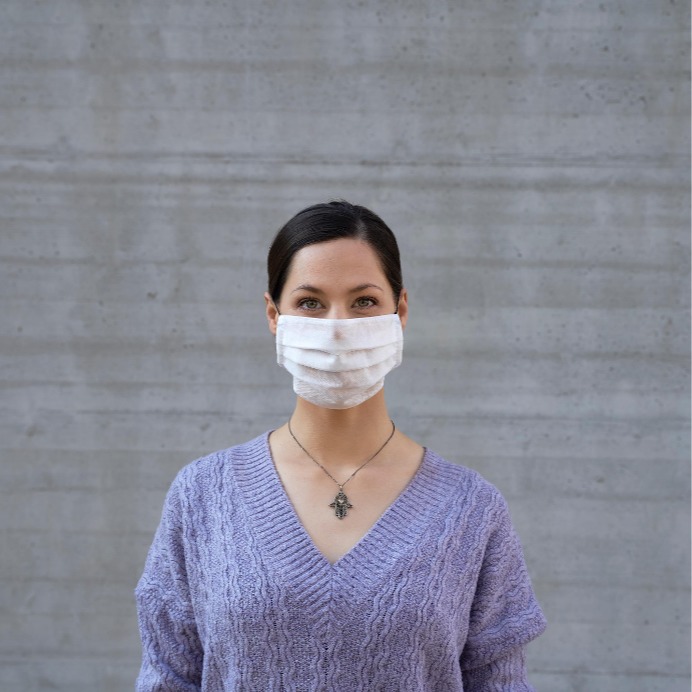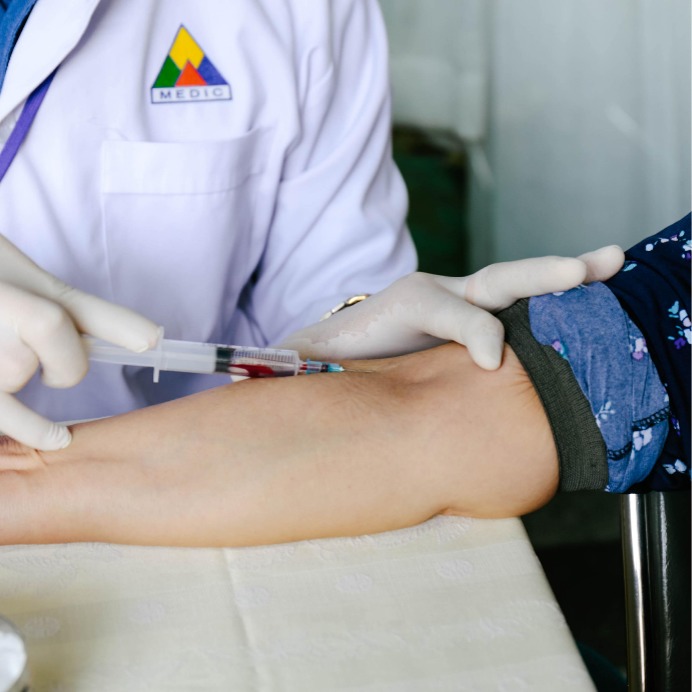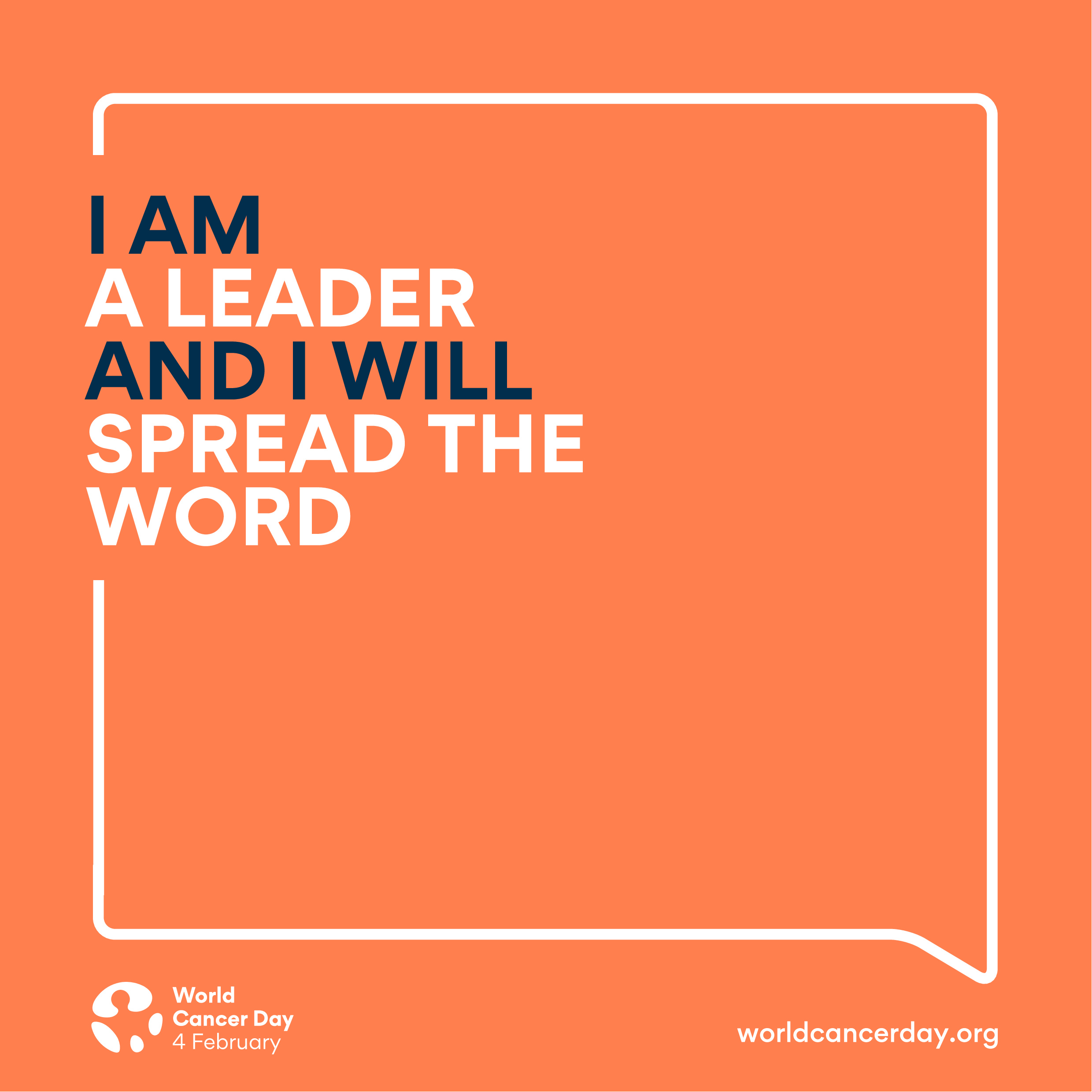By continuing to use our site, you consent to the processing of cookies, user data (location information, type and version of the OS, the type and version of the browser, the type of device and the resolution of its screen, the source of where the user came from, from which site or for what advertisement, language OS and Browser, which pages are opened and to which buttons the user presses, ip-address) for the purpose of site functioning, retargeting and statistical surveys and reviews. If you do not want your data to be processed, please leave the site.
The Voice of People With Breast Cancer
Education
Our Voices Blog
Tag : metastatic breast cancer
The Myth That Cancer Does Not Discriminate
Cancer does not discriminate. It's an often-repeated phrase, used to highlight the prevalence of cancer. The idea behind it is that whether you are young, old, poor, rich, Black, White, we all face an equal risk of being diagnosed with cancer. Unfortunately, like many other aspects of our society, cancer does in fact discriminate. Below we provide 10 research findings on breast cancer specifically that highlight the unequal nature of a breast cancer diagnosis. These studies highlight that breast cancer affects social groups differently and while some of this difference is due to the insidious nature of cancer itself, some of these findings are due to systemic and societal inequalities that become highlighted when we look at health.
Indigenous Traditional Healing
Indigenous Traditional Healing is a holistic practice that aims to treat imbalances in a person’s body, mind, emotions, and spirit together.These imbalances are thought to be the cause of illness and to result from ignoring sacred, natural laws. Tradition healing practices are distinct and culturally specific to the people who are practicing them. In Canada, First Nations, Inuit, and Métis view health as a balance of physical, emotional, mental and spiritual elements. These four elements can be impacted by the individual, their family, their community and the environment. For example, connection to the land is an important aspect of healing for the Inuit. Being out on the land and away from one’s community can bring calmness to the body and mind by removing outside influences and in turn promote personal well-being.
ASCO 2020 Conference Goes Virtual
As with most other events planned for this year, the ASCO 2020 Conference was rescheduled as a virtual event, originally set to be held in Chicago from May 29th to 31st. The American Society of Clinical Oncology (ASCO) Conference is a key research conference that brings together clinicians, researchers, and patient advocates from around the world. The conference included over 5,000 abstracts, posters, slides and videos, a day of video broadcasts and around 147 virtual exhibits. While we weren’t able to come together in person this year, ASCO successfully hosted a virtual conference that shared an incredible amount of research that’s relevant to breast cancer patients. Below are some of the highlights.
The Impact of COVID-19 on Breast Cancer Patients Part 1: Delayed Surgeries and Treatments
Individuals diagnosed with cancer have been identified as being at a high-risk of getting seriously ill if they get COVID-19. Data from various studies show that the type of cancer, the stage, the person’s age, health, and other factors contribute to how high-risk a patient may be. In addition to this, the type of treatment a person is receiving and how long their last treatment was, can all impact their outcome. At the same time, a few studies have shown that breast cancer patients fare better, compared to patients with other types of cancers.
Clinical Trials Part 3: Clinical Trials That Don’t Involve Testing Drugs
In part 1 of our clinical trials series, we explained that clinical trials allow doctors and researchers to test treatments, medical procedures and therapies for various diseases and conditions. In the second part of the series, we debunked 7 common myths on clinical trials. In both parts, we focused on the type of clinical trials most people think of when they hear clinical trials, studies involving drugs. However, clinical trials can study more than just drug treatments or surgeries. According to Clinical Trials Ontario, they can also be conducted to “test devices, genetic therapies, natural health products, psychotherapies, lifestyle and preventive care interventions, and many other things.”
Lifestyle and Nutrition Considerations for Breast Cancer Patients Series, Part 2: Three Breast Cancer Diets That Harm Not Heal
The feeling appears on the heels of a breast cancer diagnosis so quickly I think the doctor delivering the “It is cancer” news should in the same breath say, “For the rest of your life, prepare to surrender any assumptions that you ever held even a modicum of control over your health, you foolish woman.” Certain you’ll never regain your equilibrium, you search desperately for the first thing that hints even slightly as an option to ground and balance you. For many women, that “first thing” is food. Unhealthy, unsustainable dieting habits all start somewhere and unfortunately, fad diets constantly cycle through the breast cancer community.
Is It Safe To Go For Cancer Treatments During the COVID-19 Pandemic?
The COVID-19 pandemic has been particularly concerning and challenging for many cancer patients and their families. As you’ve most likely heard by now, cancer patients and survivors may be at higher risk of complications from COVID-19 because cancer and cancer treatments can contribute to weakened immune systems. This has left many patients with questions on how best to navigate their cancer care, including whether it is safe to continue their treatment, will their health care be de-prioritized by the healthcare system and how they can reduce their risk of contracting the virus.
Being a Mother with a Breast Cancer Diagnosis
Women are multi-dimensional and getting a breast cancer diagnosis does not change that. It doesn’t stop mothers from being mothers, daughters from being daughters, sisters from being sisters, etc. While a breast cancer diagnosis may put a pause on things such as your job and careers, some of the multi-dimensional roles and responsibilities that women play in life continues. One of these roles is being a mother. In honor of Mother’s Day, we asked breast cancer patients to share with us the age at which their children were, when they were diagnosed with breast cancer. We wanted to know how breast cancer impacted their life as a mother, and vice versa. Here are just some of their stories.
Clinical Trials Part 2: Debunking Common Myths About Clinical Trials
In part 1 of our blog series on clinical trials, we explained what clinical trials are, why you should participate in them and how to get more information about participating. You may now be familiar with clinical trials but still hesitant about enrolling in one because of certain concerns that you may have. These concerns are valid as many breast cancer patients have these same concerns. However, some of these concerns about clinical trials are ill-informed. In part 2 of our blog series on clinical trials, we debunk some of the most common myths surrounding clinical trials. We hope that this will provide you with some fact-based information to make a more informed decision about whether or not clinical trials are right for you.
Lifestyle and Nutrition Considerations for Breast Cancer Patients and Survivors Series, Part 1: Why You Can’t Get Consistent Answers to Your Nutrition Questions
Two years ago, I had the sincere pleasure of attending my first oncology nutrition symposium, a biennial event hosted by the Oncology Dietetic Practice Group of the Academy of Nutrition and Dietetics. Nutrition science ruled at this event, and “voodoo nutrition” based on conjecture, personal opinion, philosophies, and miracle cures was denied a seat at the table.
Using acupuncture for treating cancer treatment side effects
Like tai chi and qigong, acupuncture is another form of traditional Chinese medicine that has become a popular therapy used in the cancer community for help with side effects.
Talking Palliative Care Part 5: Understanding Medical Assistance in Dying
Receiving a life-limiting or terminal diagnosis brings with it a lot of difficult decisions that a person never wants to be in the position to make. The hardest of those is choosing to end treatment. Coming to terms with that reality and how it can affect a person’s family is not easy. Some people may consider the option of medical assistance in death. Today we are discussing this relatively new law and how it works in Canada.
Retaining control of your medical record, remaining hopeful and persevering
I am a 43-year-old mother of two amazing children, I have been in love with my wonderful Martin for 20 years now and I am a research professional in the health sector. Until August 2018, I was considered a breast cancer survivor. My cancer had been treated in the best way possible. My son was not yet one year old at the time (in 2012). I went through chemotherapy, radiotherapy, hormone therapy, a mastectomy and, finally, a breast reconstruction.
Taking Action this World Cancer Day
Every year on February 4th, World Cancer Day, we get the opportunity to reflect on the work we’re doing to help reduce the impact of cancer. World Cancer Day, led by the Union for International Cancer Control (UICC), has an action packed slogan: I Am and I Will. They’ve developed a set of key issues that affects us all. Here’s how CBCN is working to reduce the affects of cancer for Canadians based on these key issues:
Art and Music Therapy – how they can help you reduce stress and provide emotional support
When people think of therapy the most common therapy session that comes to mind probably includes a person sitting across from or lying down beside a therapist and talking about their feelings. But what if you can never quite find the right words to say to express yourself or talking through what you are feeling doesn’t seem to be helping? The truth is therapy comes in all shapes and sizes. People are looking for and creating new ways to help cope with the stresses in their lives.
Talking Palliative Care Part 4: Wills, finances and advanced care directives
The topics of financial planning and preparing your will can be complicated and distressing especially at a time when you’d rather focus on your family and your wellbeing. As difficult as tackling these tasks may be, many people describe feeling relieved when they have their financial affairs in order and feel that they can more fully enjoy time with loved ones without worrying about the to-do list in the back of their minds. Today we are breaking down many of the confusing terms that come up when preparing a will and your finances for end-of-life.
Talking Palliative Care Part 3: Grief - Living with Loss
Life is about change and every change brings loss with it. Whenever we lose something or someone that we value, we grieve. We grieve for the past – for how things were—and we may not be able to imagine our future. Although it may not be welcome, grief can help us to find ways to live with -- and even grow from -- our losses.
Research Highlights from the European Society for Medical Oncology 2019 Conference
CBCN had the opportunity to join researchers, clinicians, manufacturers and other patients at this annual European conference to learn the latest insights and findings in cancer research. Here’s the research that we found most interesting as breast cancer patients:
Why should where you live determine your quality of care? Our new campaign highlights the differences in access to treatments for mBC across Canada
Did you know that accessing treatments for stage IV metastatic breast cancer (mBC) is not universal across Canada? We live in a country that promotes universal health care to all but accessing cancer treatment varies by each province.
Pharmacare 2019: Where do Canada’s federal parties stand on a national drug access plan?
Timely access to medications is a key concern for any breast cancer patient, but drug access in Canada has long been a minefield to navigate. Inequitable access to medications across provinces, drug shortages and long wait times to access new treatments are just some of the issues patients and their families routinely encounter in their quest for treatment. National Pharmacare-a plan to reimburse prescription medications in a similar fashion as our healthcare system-has often been proposed as a solution to many of the drug access issues that Canadians currently experience. While Pharmacare has been debated nationally for a long time, it is only recently that the idea has gained real traction and momentum.























